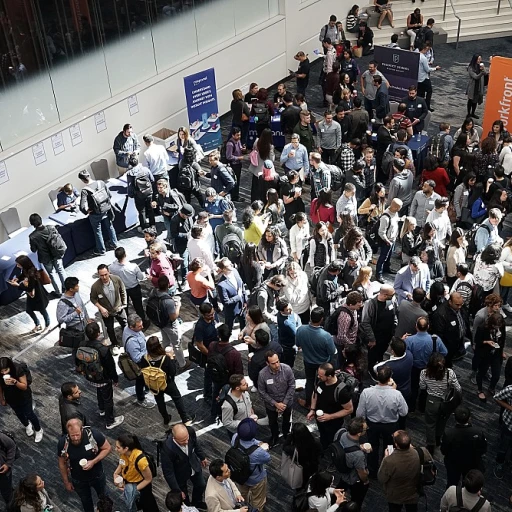Overview of Sick Leave Laws in New Jersey
Exploring New Jersey's Sick Leave Legislation
New Jersey has implemented comprehensive sick leave laws to ensure that workers, including contractors, have access to necessary sick time. The state's earned sick leave law mandates that all employers provide paid sick leave to their employees, which includes contractors under certain conditions. This legislation is designed to support public health and the well-being of workers, allowing them to take time off for their own health needs or to care for a family member.
Under this law, employees and eligible contractors earn one hour of paid sick leave for every 30 hours worked. This benefit accumulates up to a maximum of 40 hours per year. The sick leave can be used for various purposes, including personal health conditions, care and treatment of a family member, or even in situations involving domestic or sexual violence.
Employers in New Jersey are required to comply with these regulations, ensuring that their workers can take time off without fear of losing their job. This obligation not only supports the health of the individual employee but also contributes to a healthier work environment overall. Compliance with these laws is crucial for employers to avoid legal repercussions and maintain a supportive workplace culture.
For more detailed insights into legal compliance and how it affects compensation and benefits, you can explore this resource.
Contractors vs. Employees: Key Differences
Distinctions Between Contractors and Employees Regarding Sick Leave
In the realm of labor laws and benefits, understanding the fundamental differences between contractors and employees is crucial. These distinctions directly affect their eligibility for various benefits, including paid sick leave. Contrary to employees, contractors often navigate a different set of legal standards, especially in New Jersey where specific regulations apply. While employees typically receive the benefit of leave from their employers, contractors must often manage without such security. This situation arises because contractors are categorized independently and are not considered part of the traditional employer-employee relationship. As a result, the leave law might not automatically obligate employers to provide paid sick leave to contractors. This difference in classification means contractors might need to establish their own provisions for sick time, possibly through insurance or savings. However, it's vital to consult the relevant state law to understand the extent of earned sick leave contractors may be entitled to, especially if they work extensively in the state or on public health-related projects. In navigating the New Jersey sick leave landscape, contractors and employers must stay abreast of any legal shifts to ensure compliance and access to due benefits. This often includes a thorough review of current law provisions, and careful documentation of hours worked, which may influence eligibility or negotiations concerning sick leave. For a deeper exploration of how legal compliance impacts employee compensation, a comprehensive resource can be found here. It offers insights into related compliance matters that can better inform contractors and employers alike.Eligibility Criteria for Sick Leave
Navigating Eligible Sick Leave for New Jersey Contractors
In the context of sick leave regulations for contractors in New Jersey, understanding eligibility criteria is crucial. Despite being classified differently from traditional employees, contractors may still have entitlements under specific circumstances. Here's what you need to know to determine eligibility for sick leave in New Jersey. Contractors, much like regular employees, may earn sick leave based on hours worked. For every 30 hours of work, they can earn one hour of paid sick leave. This allows flexibility and acknowledgment of the work performed by contractors, ensuring they aren't excluded from essential health benefits. Several conditions can trigger eligibility for sick leave for contractors:- Diagnosis, Care, or Treatment: If a contractor needs to care for their own health or seek diagnosis or treatment due to a medical condition, they are eligible. This includes persistent issues affecting their capability to work regularly.
- Family Care: Contractors can use sick leave to care for a family member, which aligns with the inclusion of domestic or sexual violence incidents within the leave law. This approach ensures that contractors can support their family members during times of health emergencies.
- Public Health Emergencies: If a contractor is unable to work due to a declared public health emergency, sick leave becomes applicable. This allows workers to take necessary precautions without the fear of losing income.
Employer Obligations and Compliance
Responsibilities of Employers Under New Jersey's Sick Leave Law
In New Jersey, employers are required to adhere to specific obligations under the state's sick leave law to ensure compliance and support the health and well-being of their workers. Understanding these responsibilities is crucial for maintaining a fair and lawful workplace.
Employers must provide paid sick leave to employees, including contractors who meet the eligibility criteria, as discussed in the earlier sections. Here are the key obligations:
- Accrual of Sick Leave: Employees, including eligible contractors, earn sick leave at a rate of one hour for every 30 hours worked. This accrual system ensures that workers have access to paid time off when they need it for health-related issues.
- Maximum Hours: Employers must allow employees to accrue up to 40 hours of sick leave per year. This cap helps balance the needs of the business with the health requirements of the workforce.
- Usage of Sick Leave: Employees can use their earned sick leave for various reasons, including personal health conditions, care for a family member, or situations involving domestic or sexual violence. This flexibility supports both public health and individual well-being.
- Notification and Documentation: Employers can require employees to provide reasonable notice of their intention to use sick leave. Additionally, after three consecutive days of absence, employers may request documentation to verify the need for leave, ensuring the system is not abused.
- Carryover and Payout: While unused sick leave can be carried over to the next benefit year, employers are not obligated to pay out unused sick leave upon termination of employment. This policy encourages employees to use their sick leave as needed rather than accumulating it unnecessarily.
By fulfilling these obligations, employers not only comply with New Jersey's sick leave law but also contribute to a healthier, more productive work environment. This compliance ensures that workers have the necessary support to address health emergencies, care for family members, and maintain their overall well-being.
Benefits of Sick Leave for Contractors
Advantages of Sick Leave for Contractors
Navigating the landscape of sick leave regulations in New Jersey sheds light on the considerable advantages of such benefits, particularly for contractors. Let's explore these benefits and understand why they're essential for both contractors and employers.- Promotes Health and Well-being: Sick leave allows workers to prioritize their health without the stress of financial repercussions. Contractors can allocate time for illness, care, and recovery, ensuring that a temporary health setback does not lead to a long-term issue.
- Encourages Prompt Medical Care: With provisions for sick leave, contractors can seek timely care treatment and diagnosis care, reducing the risk of health conditions worsening. Timely medical attention acts as a preventive measure, promoting public health within the workforce.
- Supports Work-Life Balance: The flexibility of sick leave aids contractors in managing personal health emergencies or family member care, promoting a healthier work-life balance. This is especially beneficial during unforeseen situations like domestic violence or a health emergency.
- Enhances Job Satisfaction and Productivity: When workers feel supported through earned sick leave, their job satisfaction and productivity can see a substantial boost. It shows that the employer values their health and well-being, building a more committed workforce.
Challenges and Considerations
Considerations for Contractors in Sick Leave Operations
When it comes to navigating sick leave as an independent contractor, understanding the nuances and legislation becomes crucial to ensure compliance and maximize benefits.- Complexity in Eligibility: While employees in New Jersey are generally covered by the state's sick leave laws, contractors may face challenges in determining eligibility based on their work contracts. Being clearly informed about what classifies as eligible hours worked can aid in understanding personal entitlements.
- Defining Work Relationships: Employers may often misclassify contractors as employees or vice versa. Clarifying these distinctions is essential to determine whether sick leave applies. The classification impacts the access to earned sick time, family care, and health interventions for both parties.
- Negotiation of Terms: Contractors are encouraged to meticulously negotiate contracts to ensure that potential sick leave parameters are explicitly stated. Whether it’s care for a family member, personal health conditions, or facing situations like domestic violence or a health emergency, clear stipulations in contracts help safeguard their rights.
- Self-Management of Benefits: Since contractors don’t always receive paid sick leave from a traditional employer, they can benefit from adopting personal strategies such as setting aside funds or acquiring private insurance to handle unforeseen work interruptions.
- Impact on Public Health: The absence of enforced sick leave for contractors can have broader implications, notably in public health contexts, as individuals might be compelled to work during illness. The ripple effects can extend to employers and family members alike, influencing community wellness.
- Compliance and Documentation: Understanding and keeping up-to-date with leave laws not only aids in compliance but also offers protection in case of disputes. Contractors ought to document all work-related communications and arrangements regarding sick time to ensure evidence in support of any claims or discrepancies.








